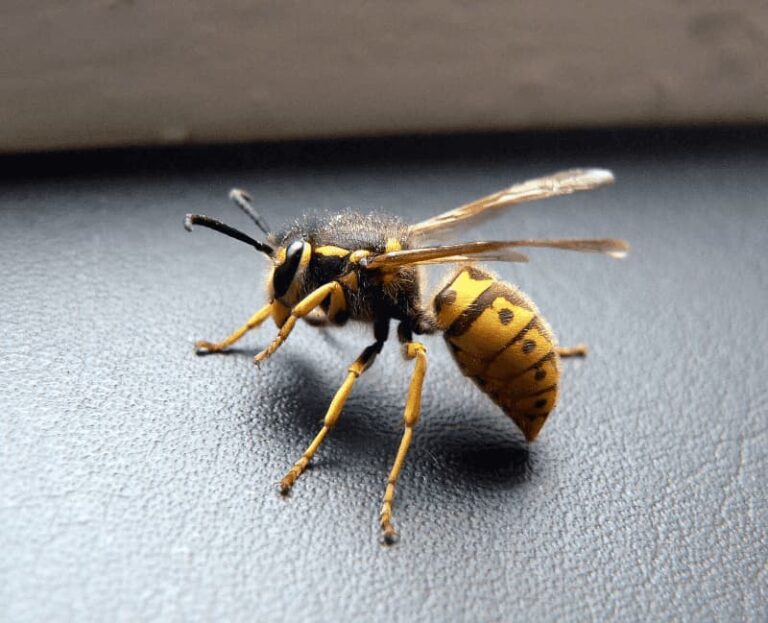1. Yellow Wasps
Yellow wasps can be recognized by their yellow and black stripes on their body. They are usually ½ inch to 1 inch long. Yellow wasps are aggressive and can sting multiple times, especially if you get close to their nest. Their stings are painful and dangerous for people with allergies. They often build nests in the ground, shrubs, and wall voids. This condition is most common in the Jacksonville city area and along its coast.
2. Paper Wasps
Paper wasps are about ¾ inch long with a brown and reddish body. They are known for their umbrella-shaped paper nest; they usually build under roofs, porch ceilings, and sheds in suburban and city areas. They are less aggressive, but they attack quickly if their nest is disturbed. Their sting can cause swelling and pain.
3. Mud Daubers
Mud daubers have a thin body and are around ½ inch long, usually black with pale markings or metallic blue. They make mud tube nests on walls, attics, and garages. In Jacksonville, they are common in city buildings and coastal areas, such as Jacksonville Beach, Fleming Island, Ponte Vedra, and Palm Valley. They rarely sting, but their abandoned nest can attract other aggressive species.
